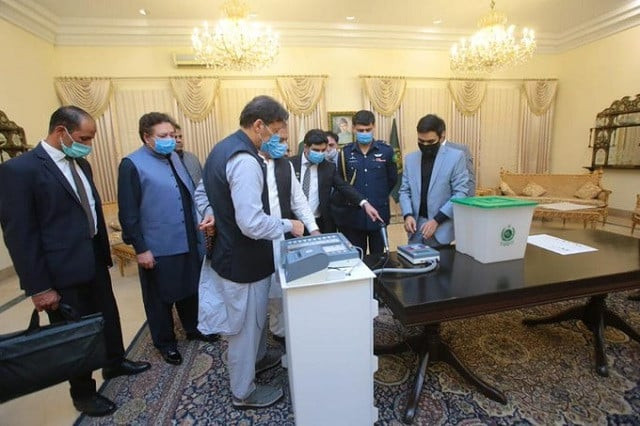FAFEN warns against electoral reforms sans consensus
Election monitoring body identifies ‘legal inadequacies’ in bills

Any effort to amend the Elections Act, 2017 without a larger political consensus will bring into question the legitimacy of future elections, and may cause political instability that can potentially reverse the process of democratic consolidation in Pakistan, the Free and Fair Election Network (FAFEN) warned on Saturday.
“FAFEN sees with concern the imbroglio between the government and the opposition parties as counter-narrative of the democratic traditions and practices that had seen the treasury always ensuring a political consensus on particularly constitutional amendments and electoral reforms,” it said in a statement.
It noted that despite political fragmentation, political parties had developed a consensus on electoral reforms in 2017 after three years of rigorous consultations under the aegis of a multi-party parliamentary committee.
Read ECP hints at using EVMs in next elections
“The government must uphold such practices as a way forward on critical amendments to the election law, which are being proposed through Elections (Amendment) Bill, 2020 and Elections (Second Amendment) Bill, 2021. Both these bills have already been passed by the National Assembly without any debate on June 10, 2021.”
The body observed that although the Elections (Amendment) Bill, 2020 proposed major changes in the process of delimitation, voter registration, priority-listing of women candidates for reserved seats and political party regulations, the public discourse had only focused on the introduction of electronic voting machines (EVMs) and overseas voting proposed by Elections (Second Amendment) Bill, 2021.
“Both the bills merit an in-depth discussion among major political parties, whether or not represented in the incumbent parliament and provincial assemblies, for a broad-based consensus as they will have far-reaching consequences on the election system.”
FAFEN said the responsibility of achieving such a consensus rested with the federal government.
“The government and political parties should not transfer the responsibility of making political decisions to the Election Commission of Pakistan (ECP) through vague legislative decisions. Dragging the ECP into such controversies will undermine the credibility of future elections and their outcomes.”
The body advised that parliament should rather invest in strengthening the capacities of the ECP through definite legislative measures and appropriate financial resources.
FAFEN pointed out that unnecessary criticism of the ECP for giving independent reviews/opinions under its constitutional mandate as provided under Article 218 (3) was tantamount to disrespecting the Constitution, and fell within the ambit of Section 10 of the Elections Act, 2017.
Read PDM rejects ‘unconstitutional’ EVMs
“Of particular concern is the government’s aggressive push for the introduction of EVMs and overseas voting without providing adequate legislation catering to the complex questions that are necessary to be addressed before the introduction of any technology at a national scale. The proposed amendment allows the ECP to procure EVMs for casting of votes in general elections without detailed consideration of its legal, regulatory and administrative impacts.”
Similarly, the proposed amendment requiring the ECP to enable overseas Pakistanis to exercise their right to vote in their country of residence is also strewn with inadequacies. The amendment reflects the government’s intention that an IT-based system may be developed with the assistance of the National Database and Registration Authority (NADRA), but it has not provided any corresponding changes to the election law that may be required to enable potentially 9.5 million overseas Pakistanis to vote.



















COMMENTS
Comments are moderated and generally will be posted if they are on-topic and not abusive.
For more information, please see our Comments FAQ